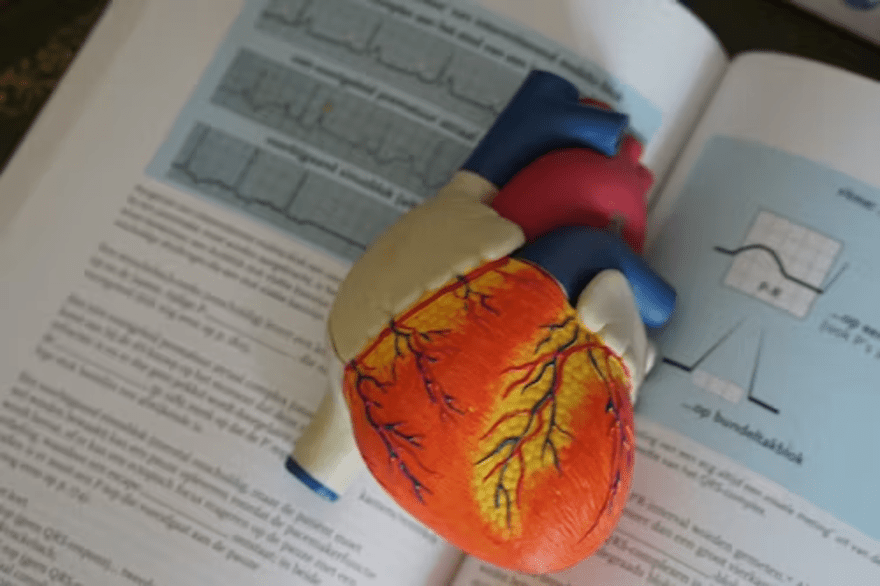Preventive Healthcare
CK-MB Test: Understanding Cardiac Biomarker Testing
29944 Views
0

When it comes to your heart's health, you can get the CK-MB test done. This simple blood test holds the key to understanding the condition of your heart. In this article, we'll take you through the details of the CK-MB test, providing clear and straightforward explanations of the term.
Whether you've heard about it from your doctor or it's entirely new, we've got you covered. Let's have a look at how this test works, why it's performed, what to expect and its advantages and disadvantages.
What is CK-MB test?
The CK-MB test, or Creatine Kinase-MB test, is a blood test that measures the level of a specific enzyme called creatine kinase-myocardial band (CK-MB) in the bloodstream. CK-MB is predominantly found in the heart muscle.
This test is commonly used to diagnose heart-related conditions, particularly to assess if there has been damage to the heart muscle, during a heart attack.
Elevated CK-MB levels can indicate cardiac injury, helping healthcare providers make informed decisions about treatment and patient care. It plays a crucial role in diagnosing acute myocardial infarctions (heart attacks).
What is CK-MB?
CK-MB, or Creatine Kinase-MB, is an enzyme found in the heart muscle. It is one of three forms of creatine kinase (CK) present in the body. The CK-MB test measures the levels of this enzyme in the blood and is used to diagnose heart-related conditions, especially acute myocardial infarction (heart attack). Elevated CK-MB levels indicate heart muscle damage, aiding the assessment of cardiac health.
CK-MB Test Normal Range: The normal range for CK-MB levels in the blood is typically between 5 and 25 IU/L (international units per litre).
Elevated CK-MB Causes: Elevated CK-MB levels are specific for heart muscle damage, often indicating conditions like myocardial infarction (heart attack). Other causes can include myocarditis and pericarditis.
How does this test work?
The CK-MB test measures the levels of creatine kinase-myocardial band (CK-MB) in the bloodstream. CK-MB is a specific form of creatine kinase primarily found in heart muscle cells. When there is damage to the heart muscle, as in the case of a heart attack or other cardiac conditions, CK-MB is released into the blood.
This test involves taking a blood sample, typically from a vein in the arm. The blood sample is then analysed in a laboratory to determine the concentration of CK-MB. Elevated levels of CK-MB in the blood indicate cardiac muscle damage, making it a valuable diagnostic tool for heart-related conditions.
Why is this test performed?
The CK-MB test is performed to assess heart health. It helps diagnose conditions such as heart attacks (myocardial infarctions) by measuring creatine kinase-myocardial band (CK-MB) levels in the blood.
Elevated CK-MB levels indicate heart muscle damage, enabling timely intervention and treatment. This test is a valuable tool for identifying and monitoring cardiac issues, aiding healthcare providers in making informed decisions about patient care.
CK-MB in Myocardial Infarction: Elevated CK-MB in the blood is a specific marker used in the diagnosis of myocardial infarction (heart attack). It is one of the indicators that healthcare providers use to assess cardiac damage.
When and where is this test performed?
The CK MB blood test is performed in clinical settings, such as hospitals and medical laboratories. It is conducted when there is suspicion of heart-related conditions, especially after symptoms like chest pain or during the evaluation of suspected heart attacks.
The timing of the CK-MB lab test is critical, as CK-MB levels can be detected in the blood about 3-6 hours after the onset of chest pain, with peak levels occurring later. It is part of the standard diagnostic process for heart issues, ensuring timely and accurate assessment.
Who performs this procedure?
The CK-MB test is conducted by healthcare professionals, such as doctors, nurses, or medical laboratory technicians, in clinical settings like hospitals, clinics and diagnostic laboratories. They collect a blood sample from the patient's vein, which is then sent to a laboratory for analysis.
Once the blood sample is received, trained laboratory staff test the blood to measure the levels of creatine kinase-myocardial band (CK-MB). The results are then interpreted by healthcare providers to diagnose heart-related conditions and guide patient care.
Can I prepare for it and what should I expect?
You don't need any special preparation for a CK-MB blood test. It's a blood test used to detect heart muscle damage or injury, suspecting heart problems like a heart attack. To have the test, a healthcare professional will draw blood from a vein in your arm.
There are no specific dietary or activity restrictions before the test and it can be performed without prior preparation. The procedure is relatively quick and involves minimal discomfort, like a standard blood draw. Results are typically available within a day and your healthcare provider will interpret them to assess your heart health and determine any necessary treatments or further tests.
What can I expect during the test?
During a CK-MB test, a healthcare professional will draw blood from a vein in your arm. They will clean the area with an antiseptic, wrap an elastic band around your arm to make the veins swell, insert a needle to collect a blood sample, and then remove the needle.
The procedure is relatively quick and involves minimal discomfort, similar to a standard blood draw. Once the blood sample is collected, it will be sent to a laboratory for analysis to measure the CK-MB levels.
What can I expect after the test?
After a CK-MB test, you can expect to resume your daily activities without any specific restrictions. There's no downtime or recovery period associated with this CK-MB blood test. Your blood sample will be sent to a laboratory for analysis and you'll receive the results in a few days.
The results will indicate the levels of CK-MB in your blood, which can help diagnose or rule out a heart attack. Your healthcare provider will discuss the findings with you and recommend any necessary follow-up actions or treatments based on the test results.
High CK-MB Treatment: The treatment for high CK-MB levels primarily involves addressing the underlying heart condition, such as immediate interventions for a heart attack (e.g., angioplasty or medications) or managing conditions like myocarditis.
What are the risks of this test? Are there side effects?
The CK-MB lab test is generally safe with minimal risks. The primary risk is minor bruising or discomfort at the place from where the blood is drawn. It's a routine CK-MB blood test and typically does not cause significant side effects.
What type of results will I get and what do the results mean?
The results of a CK-MB test provide valuable information about heart health. There are two key aspects to the results:
Percentage of CK-MB in total CK
The CPK MB blood test measures the percentage of creatine kinase-myocardial band (CK-MB) about the total creatine kinase (CK) in your blood. This percentage is expressed as a ratio and it serves as an important diagnostic marker. Elevated CK-MB as a percentage of total CK can indicate heart muscle damage, typically associated with a heart attack.
CK-MB levels
In addition to the percentage, the absolute levels of CK-MB are measured in international units per litre (IU/L). Elevated CK-MB levels can suggest heart muscle injury or stress, particularly in chest pain or other symptoms associated with heart problems. Normal CK-MB levels are usually low or undetectable, so any elevation can be significant.
What are the advantages and disadvantages of the CK-MB test?
The CK-MB test, which measures creatine kinase-myocardial band, has both advantages and disadvantages:
Advantages:
- Speed: One of the significant advantages of the CK-MB test is its speed. CK-MB levels in the blood rise quickly after a heart attack or other heart-related damage. This rapid response allows for a prompt diagnosis and timely medical intervention, potentially saving lives.
- Specificity: CK-MB is a specific marker for cardiac muscle damage. When elevated, it strongly suggests heart-related issues, such as myocardial infarction (heart attack).
- Comparison Standard: CK-MB has historically been considered the gold standard in comparison to other biochemical markers of myocardial necrosis. It has served as a reliable benchmark for assessing heart damage.
Disadvantages:
- Limited Scope: CK-MB only measures one specific enzyme, creatine kinase-myocardial band. While this makes it highly specific for heart damage, it doesn't provide a comprehensive assessment of overall heart health.
- Replacing Alternatives: In recent years, other diagnostic markers and tests have largely replaced CK-MB. Troponin, for instance, is now a preferred marker for detecting heart muscle damage due to its higher specificity and sensitivity.
- False Positives: While CK-MB is specific to the heart muscle, certain conditions or medical interventions can lead to false positives. For example, strenuous exercise, skeletal muscle injury, or some medical procedures may cause CK-MB elevation without heart disease.
Conclusion
The CK-MB test is a vital diagnostic tool for assessing heart health. It provides valuable insights into heart muscle damage, aiding in the prompt diagnosis and treatment of heart-related conditions. While it has advantages, it's important to recognise its limitations and use it in conjunction with other diagnostic methods for a comprehensive assessment of cardiac health.
Visit Metropolis Labs to get all kinds of health tests done. A team of qualified technicians provides at-home blood sample collection, processed at advanced diagnostic labs, and the reports are conveniently shared online via email and the Metropolis TruHealth app.













1701259759.webp)









 WhatsApp
WhatsApp